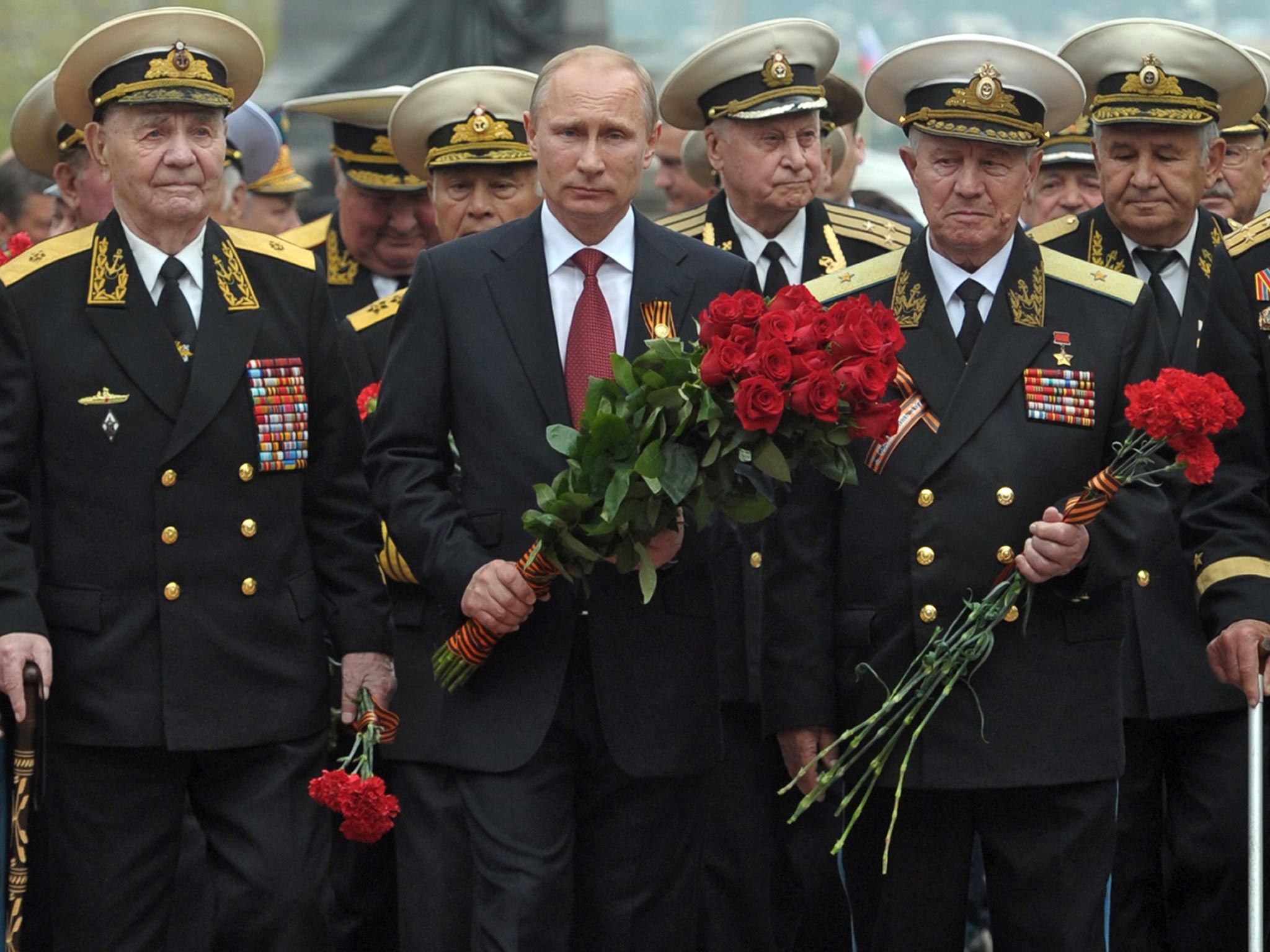
Vladimir Putin was back in commander-in-chief role to mark Victory Day, one of the few holidays that Russia has incorporated from the Soviet Union. And he followed up his speech at the military parade in Moscow with a triumphal appearance in Crimea, two months after the territory’s annexation. This was the Russian President as his many Western adversaries like to see him, seeming to confirm his expansionist intent.
From the Kremlin’s point of view, however, it would have sent an unaccustomed signal of weakness if Mr Putin had not used the occasion to preen in Crimea. The surprise for Russian audiences might have been rather that he made no mention of Ukraine in either of the day’s speeches and offered no succour to those fighting groups described in Western reports as “pro-Russian”. Sometimes what is not said is as significant as what is said, yet omissions have a habit of passing unnoticed.
Consider, though, what Mr Putin had said just two days before, at a meeting with the Swiss President, Didier Burkhalter, who currently chairs the Organisation for Security and Co-operation in Europe, when he expressed qualified support for Ukraine’s presidential election, which is due to be held in two weeks’ time. He also called on local authorities in eastern Ukraine to postpone referendums on federalism planned for this weekend.
So out of character were Mr Putin’s words judged to be, that they were described as a “U-turn”, or at very least a “shift” by Moscow. Either, it was hazarded, Russia was being influenced by the threat of tougher Western sanctions or the deaths in Odessa last weekend had brought home to Mr Putin the imminent risk of civil war. Neither need be so.
Support for Ukraine’s election only looks like backtracking if you accept the premise of Mr Putin’s expansionist intent, which has so far been almost entirely in the eye of hostile Western beholders. Back in February, Russia supported the agreement drawn up by EU intermediaries, which included an early presidential election. Russia’s Foreign Minister, Sergei Lavrov, accepted this in his ill-fated agreement with the US Secretary of State, John Kerry, in Geneva.
Throughout the Ukraine crisis, Russia’s apparent and stated priorities have been quite consistent. First, to ensure Russia’s national security – which includes the security of its Black Sea Fleet at Sevastopol; second, to retain influence in its own backyard; and third, to protect the interests of Russian-speaking Ukrainians who do not want their country incorporated into the West.
Mr Putin’s support for the election, so long as the rights of “all citizens” are protected, and his call for the referendums to be delayed are of a piece with these objectives. Yet those objectives have repeatedly been misread or obscured in the West.
Three weeks ago, Nato circulated satellite images supporting the readiness of Russia to invade which were misleading and/or outdated. Last week, Nato’s Supreme Allied Commander in Europe, General Philip Breedlove, said he no longer believed Russia would invade eastern Ukraine, yet his view was hardly reported.
Recent statements – by Mr Lavrov and Mr Putin – that some or all of Russia’s troops at the border were being, or had been, stood down have been ridiculed, though the West could have used its satellites to verify them. Earlier, the US had circulated false pictures (courtesy of Kiev intelligence), purporting to show Russian troops on the ground in eastern Ukraine. All right, so this version continued with utter confidence, maybe there are not actual troops on the ground, but Russia controls what is going on.
The evidence for this was always shaky. It is now even shakier, given that local authorities say they will defy Moscow to hold tomorrow’s referendums on federalism regardless. The forces fighting in the east are pro-Russian only in so far as they oppose (and fear) the pro-Western government in Kiev. It is high time that Western reports spelled out that both sides are first and foremost Ukrainian. It is they, not Washington or Moscow, who will have the last word.

Join our commenting forum
Join thought-provoking conversations, follow other Independent readers and see their replies
0Comments